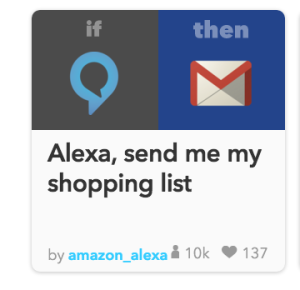I’ve raved before about Echo, Amazon’s increasingly versatile smart home hub, primarily because it is voice activated, and thus can be used by anyone, regardless of tech smarts — or whether their hands are full of stuff. As I’ve mentioned, voice control makes it a natural for my “SmartAging” concept to help improve seniors’ health and allow them to manage their homes, because you don’t have to understand the underlying technology — just talk.
Now there’s a challenger on the horizon: start-up Zoe, which offers many of Echo’s uses, but with an important difference that’s increasingly relevant as IoT security and privacy challenges mount: your data will remain securely in your home. Or, as their slogan goes:
“So far, smart home meant high convenience, no privacy, or privacy, but no fun. We are empowering you to have both.”
You can still get in on Zoe’s Indegogo campaign with a $249 contribution, which will get you a hub and an extra “voice drop” to use in another room, or the base level, $169 for a single room. Looks kinda cool to me, especially with the easily changed “Art Covers” and backlight coloring (the Che Guevera one looks appropriate for a revolutionary product) … The product will ship in late 2016.
Don’t get me wrong: I love Echo & will be getting mine soon, but there is that creepy factor given government officials’ fascination with the potential of tapping into smart home data as part of their surveillance. Remember what US Director of Intelligence James Clapper said, ““In the future, intelligence services might use the [internet of things] for identification, surveillance, monitoring, location tracking, and targeting for recruitment, or to gain access to networks or user credentials.” Consider then, that Echo sits there on your kitchen counter, potentially hacked and then hoovering up all of your kitchen chit-chat to relay directly to the spooks. Wouldn’t you rather that data remained totally under your control?
In addition to storing the data on site rather than in the cloud, Zoe also touts that it has advanced voice-recognition so it can learn IFTTT-style “recipes,” or be operated by apps. She comes with 1,500 built-in voice commands, or, if you stump her, (and only if you choose to, preserving that in-house-only option) web-based Advanced Voice Recognition steps in, with a cloud-based voice recognition system. Her recognition capabilities will grow over time.. Zoe will work with WiFi, Bluetooth, Z-Wave, and other standards.
The company will ship the developers’ kit in six months. It will be open source.
Not being cloud based will mean it loses to Echo on two important counts. For many people, the ability to order things from Amazon simply by speaking may be more important than security concerns,. Also, I notice it doesn’t mention any speakers, so it may be lacking the ability to also serve as a music source (obviously it wouldn’t work with Amazon Music or Apple Music if it isn’t cloud-connected, but it would at least be nice to be able to use it to play your own collection — advantage to Echo on that one.
At least this means there’s competition in the field (and, BTW, I’d love to see Apple swoop in and make THE voice-activated device!)
BTW: Thanks to good buddy Bob Weisberg for the tip about Zoe! Follow him!



